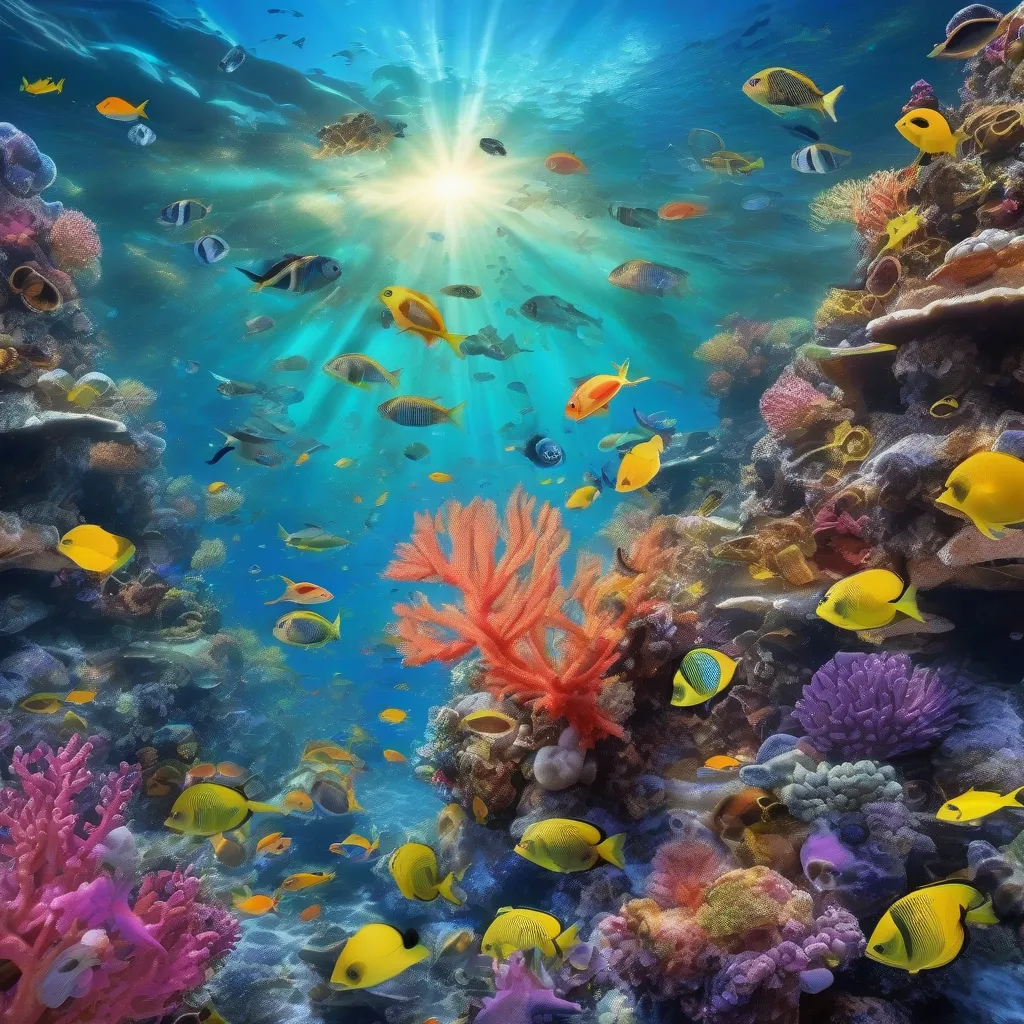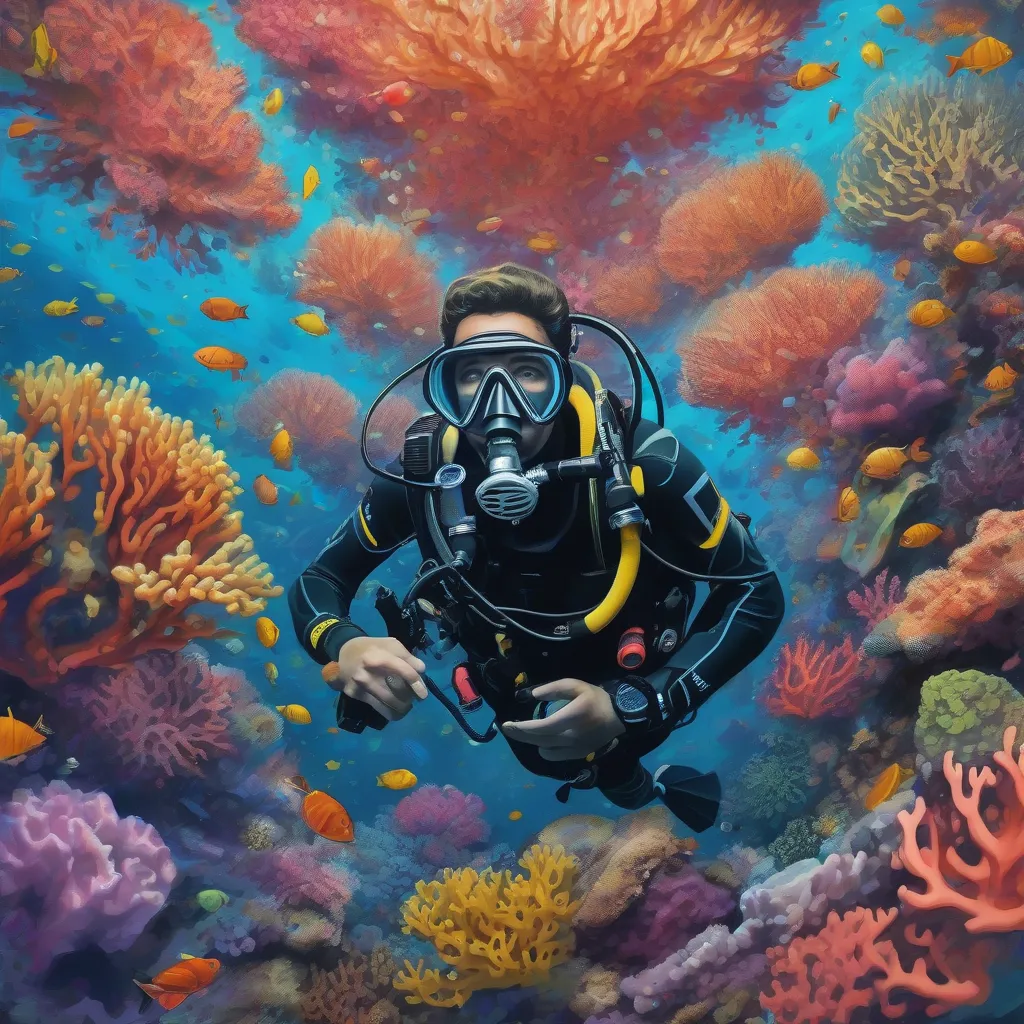Have you ever been swimming in a pool and heard the distinct, high-pitched call of a dolphin from a nearby exhibit? Or perhaps you’ve snorkeled in the ocean, fascinated by the pops and clicks of a coral reef coming alive? These experiences highlight a question that has intrigued both scientists and dreamers for centuries: Does Sound Travel In Water? The answer, as you might have guessed, is a resounding YES!
The Science of Sound in Water
Sound travels in waves, and it needs a medium to propagate. Unlike light, which can travel through the vacuum of space, sound relies on molecules to vibrate and carry the wave. In air, these molecules are relatively spread out, which is why sound travels slower in air compared to denser mediums.
Water, with its tightly packed molecules, proves to be an excellent conductor of sound. In fact, sound travels approximately 4.3 times faster in water than in air. To put it into perspective, that’s a speed of about 1,480 meters per second in water, versus 343 meters per second in air!
How Sound Changes Underwater
The aquatic environment significantly impacts sound characteristics.
- Speed: The increased speed of sound underwater can be attributed to the closer proximity of water molecules compared to air molecules. This means sound waves have less distance to travel between interactions, leading to faster propagation.
- Distance: Sound waves can travel much farther in water than in air. This is why whales can communicate across vast distances in the ocean, and why sonar technology is so effective for mapping the ocean floor.
- Frequency: The way we perceive sound underwater also differs. Lower frequency sounds tend to travel farther, while higher frequency sounds are absorbed more quickly. This is why the underwater soundscape often seems muffled and dominated by lower tones.
Exploring the Underwater Soundscape
From the gentle lapping of waves on the shore to the booming calls of humpback whales, the underwater world is alive with sound.
Natural Sounds
Imagine diving into the Great Barrier Reef, a UNESCO World Heritage Site known for its breathtaking biodiversity. You might hear the crackling and popping of snapping shrimp, the whooshing of fish swimming by, or even the haunting songs of whales communicating across vast distances.
Man-Made Sounds
Human activities also contribute to the underwater soundscape, sometimes with detrimental effects. Boat engines, sonar systems, and underwater construction all produce noise pollution that can disrupt marine life, affecting their communication, navigation, and even their survival.
 Underwater Soundscape
Underwater Soundscape
The Importance of Understanding Underwater Sound
Studying underwater sound is crucial for a variety of reasons:
- Marine Conservation: By understanding how noise pollution affects marine life, we can develop strategies to mitigate our impact and protect vulnerable species.
- Ocean Exploration: Sound waves are used to map the ocean floor, locate underwater objects, and study ocean currents.
- Scientific Research: Analyzing underwater sounds helps scientists study animal behavior, track whale migration patterns, and monitor changes in the marine environment.
FAQs about Sound in Water
Does the temperature of water affect how sound travels?
Yes, sound travels faster in warmer water.
Can humans hear the same way underwater as they do in air?
No, our ears are designed to work in air. While we can still perceive sound underwater, it sounds different because water conducts sound differently to air, and because our skulls vibrate in response to the sound waves.
What is the loudest sound ever recorded in the ocean?
The loudest sound ever recorded underwater was the result of an underwater volcanic eruption near Krakatoa in 1883. The sound was so powerful that it was heard thousands of miles away!
Travel Tip: Embrace the Underwater Symphony
If you have the opportunity to go snorkeling or scuba diving, take a moment to simply pause and listen. Close your eyes and immerse yourself in the symphony of sounds surrounding you. You might be surprised by the beauty and complexity of the underwater soundscape.
 Scuba Diver Listening to Underwater Sounds
Scuba Diver Listening to Underwater Sounds
Continue Your Journey with Travelcar.edu.vn
Want to learn more about the fascinating world of sound and travel? Check out these related articles on our website:
Don’t forget to share your thoughts and experiences in the comments below! What are some of the most memorable underwater sounds you’ve encountered during your travels?

